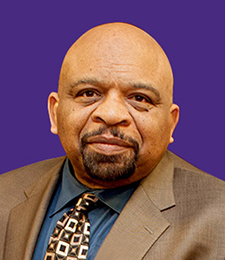The President's Column: We Workers Have Few Friends In Washington, D.C.
May 16, 2017

So we’ll rely on each other’s strength to continue our important work.
It should not come as a surprise to 1199ers that working people these days have few friends in high places in Washington, D.C. Despite President Trump’s claim to represent the working class, his chosen cabinet and close circle of advisors includes only billionaires, multi-millionaires, and a handful of retired generals.
These are the folks who proposed to destroy healthcare coverage for 24 million workers in order to give the wealthiest Americans nearly one trillion in tax cuts over the next decade. They are also the ones who developed President Trump’s budget, which would eliminate or severely diminish funding for legal services for the poor, family planning services, the Meals on Wheels program, housing subsidies, public transportation, medical research, environmental protection, occupational safety and health, and more. The goal? To give an additional $54 billion a year to the Pentagon, which already spends more than China, Russia, Great Britain, France, Saudi Arabia, India, and Japan combined.
For all the promises about bringing back jobs, this is a government that opposes raising the federal minimum wage above $7.25 an hour. (Many even advocate for eliminating the minimum wage altogether.) High on the legislative wish list are laws to curtail union organizing and collective bargaining. To be clear, this is not a worker-friendly government. Most employers—including some of our own—are thrilled.
And just as President Trump’s demeaning speeches and tweets opened the way for a wave of hate-filled racist attacks against immigrants, Muslims, women, and people of color, his anti-worker agenda is certain to encourage employers to try to take back our hard-earned gains.
So this is a good time for each of us to take stock of ourselves as union members, to ask ourselves how important it is to us to belong to 1199SEIU. First things first: we have jobs. Millions of our fellow workers can’t say that. Even the bulk of the new jobs that have been created since the crash of 2008—the jobs news commentators mention when they describe the “recovery”—are part-time jobs, temp jobs or lowwage, service jobs.
Now consider the things we have that most workers do not. (Admittedly, not all 1199 contracts are equal: Some are better than others, depending on union density, strength of our various bargaining units, funding streams from our states and cities, and other factors.) Most of us have some form of job security, or at least on-the-job security, where we can’t be fired without cause. Most workers do not have such protection. Most of us receive periodic wage increases. Most other workers do not. Many of us have some form of pension or retirement security.
1199 Magazine | March/April 2017

